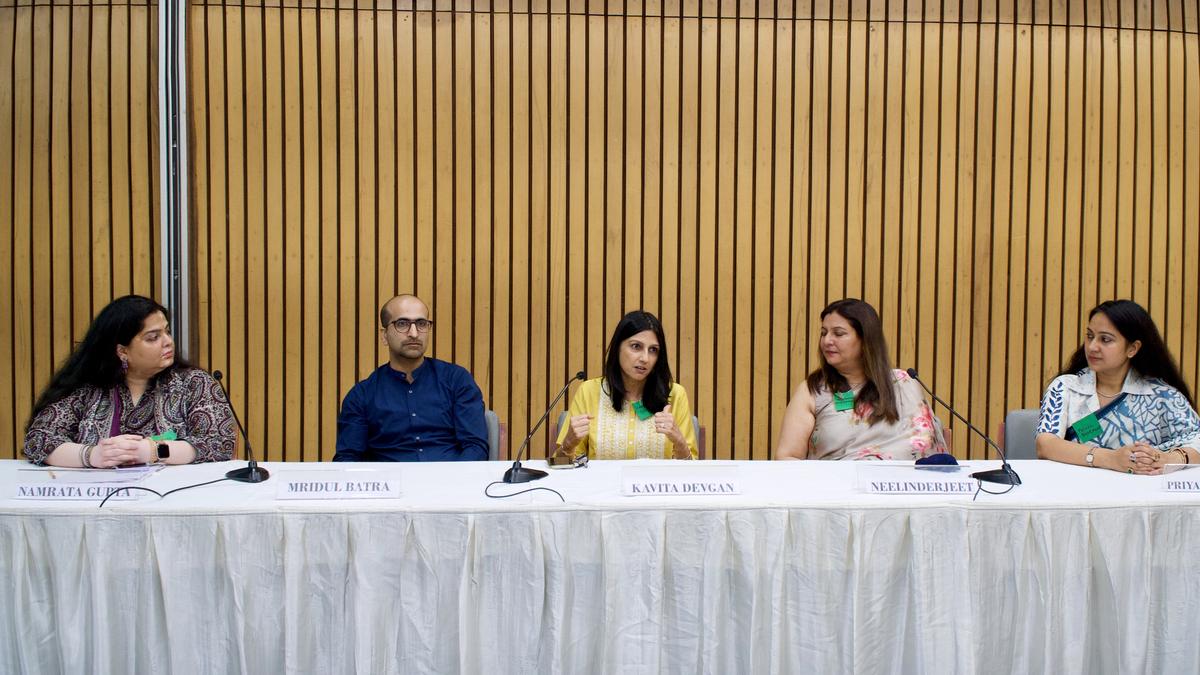
In action there is hope for climate change
The Hindu
Climate conversations seminar explores mental health impacts of climate change, emphasizing storytelling and community action for awareness and healing.
Panellists at a seminar on Climate conversations: Understanding Anxiety and Action, focussed on the deep intersection between climate change and mental health, and how media and the art of storytelling could play a role in raising awareness and mitigating the issue.
The discussions on Friday were organised by The Mind Diaries in collaboration with The Climate Reality Project.
“Climate change is impacting the psychological landscape” said Seema Kumar, co-founder and editor-in-chief of The Mind Diaries. She talked about the healing effect of creative art and storytelling, in the context of engaging mental health and how collective community effort could bring about an impactful change in conversations on the subject.
Aditya Pundir, Director (India and South Asia) The Climate Reality Project, drew the attention to climate change severely impacting agriculture, damaging infrastructure and causing water crisis. He highlighted health concerns particularly with rise in Dengue and Malaria cases. “There are two types of people who experience mental health issues surrounding the climate: those who read up on the climate crises,and develop an anxiety surrounding climate change, and those who have actually lived through such crises, and have to deal with the trauma caused by it,” he said.
According to Sandhya Choudhary from Vidyasagar Institute of Mental Health, Neuro & Allied Sciences, Delhi, a quarter of people who seek therapy at the Institute belong to 14 years to 30 years age group with eco-anxiety. “It is a rational response to an irrational world, which often develops a sense of helplessness. There is was a rhythm to life but when climate change causes inconvenient shifts in seasons, healing begins by talking about it,” she said.
On how media plays a role in driving narratives surrounding climate change, environment journalist Nidhi Jamwal said there was a need for reporters to create solution-centric stories than just writing about the problems. “Media is not trained to report on mental health,” she said. “While highlighting a problem, the tone of a story should be kept positive, which is sometimes difficult to navigate,” she added.
Ms.Jamwal also rued the lack of marginalised voices when it comes to reporting on agriculture. “We need to speak in the language of people’s hearts,” added R J Neelakshi Malik and described how her radio show weaves environmental consciousness into everyday conversations. “Even for eating golgappas by the roadside, I always carry my utensil. Everybody should join Bring Your Own Bartan club,” she added.





















 Run 3 Space | Play Space Running Game
Run 3 Space | Play Space Running Game Traffic Jam 3D | Online Racing Game
Traffic Jam 3D | Online Racing Game Duck Hunt | Play Old Classic Game
Duck Hunt | Play Old Classic Game











